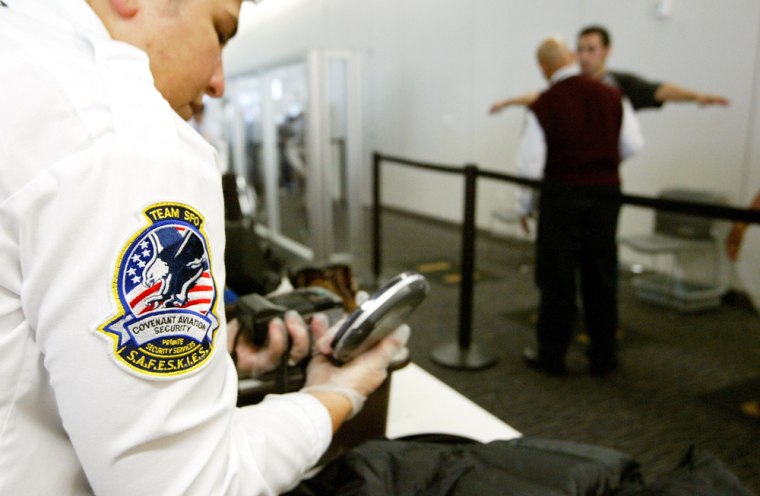The government is dropping a plan to collect personal data on airline passengers to assess security risks because of privacy concerns, Homeland Security officials told NBC News on Thursday.
The officials confirmed a report in USA Today that the Homeland Security Department had all but scrapped plans for the controversial Computer Assisted Passenger Prescreening System, known as CAPPS II, which has come under criticism from privacy advocates and some members of Congress.
The program, which has never been tested fully, was launched after the Sept. 11, 2001, hijacking attacks to refine electronic techniques for using personal information to identify and rate potential threats.
USA Today reported that when he was asked whether the program could be considered dead, Homeland Security Secretary Tom Ridge jokingly gestured as if he were driving a stake through its head and said: “Yes.”
He cited privacy concerns, particularly those arising from proposed legislation that would have required airlines to hand over information about passengers as part of a test of the program, the newspaper said.
Ridge said a new program with a different name might be developed to replace CAPPS II. It could be replaced by a new “registered traveler” program if enough people volunteered to provide personal information, the report said.
Lawsuits have impact
David Stone, acting administrator of the Transportation Security Administration, said Tuesday at his Senate confirmation hearing that the TSA might alter or eliminate aspects of the CAPPS II program that have generated lawsuits and other complaints from privacy and consumer groups.
Airlines, some of them facing lawsuits, have been caught up in the controversy because they provided passenger information for use in testing the screening system.
The American Civil Liberties Union, which led a drive to change or repeal CAPPS II, said Ridge was to be “commended for taking this decisive step.”
“Knowing that this program is dead, I do not feel one bit more vulnerable to terrorist attack,” said Barry Steinhardt, director of the ACLU’s Technology and Liberty Project. “But I feel a lot less afraid of getting trapped in a tangled security bureaucracy, with no assurance of getting out.”
